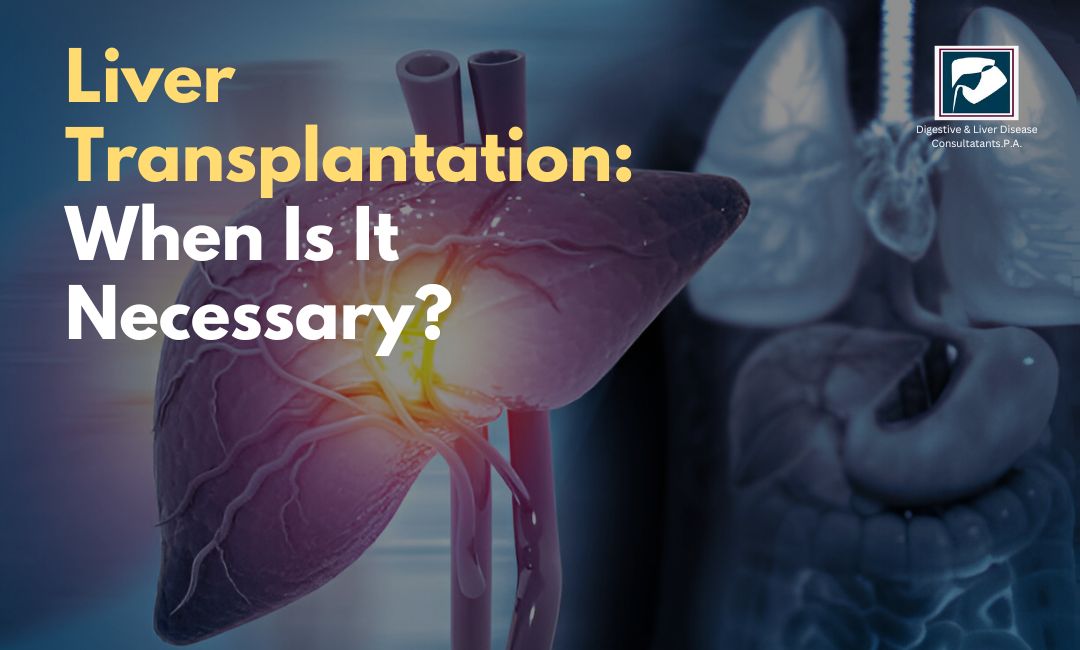The liver is one of the most vital organs in the human body, responsible for hundreds of essential functions, including filtering toxins from the blood, producing bile to aid digestion, and storing energy in glycogen. When the liver fails to function properly, it can have serious and potentially life-threatening consequences. For some individuals, liver transplantation may be the only viable treatment option. But how do you know when it's necessary? Let’s explore.
Understanding Liver Transplantation
A liver transplant is a surgical procedure where a diseased or failing liver is replaced with a healthy liver from a donor. This procedure is usually recommended for patients with end-stage liver disease or acute liver failure when other treatments are no longer effective. Liver transplants have a high success rate, offering patients a new lease on life.
Causes of Liver Damage
Liver damage can occur gradually or suddenly, depending on the underlying cause. Here are some common conditions that might lead to the need for a liver transplant:
Chronic Liver Diseases
- Cirrhosis: This condition involves irreversible scarring of the liver tissue, which hampers its ability to function. Common causes of cirrhosis include chronic hepatitis B and C, excessive alcohol consumption, and non-alcoholic fatty liver disease (NAFLD).
- Non-Alcoholic Steatohepatitis (NASH): A severe form of NAFLD that leads to inflammation and liver damage.
Acute Liver Failure
- Sudden liver failure can result from conditions like drug overdoses (e.g., acetaminophen), viral infections, or exposure to toxins.
Inherited Liver Diseases - Genetic disorders such as Wilson’s disease (copper accumulation) or hemochromatosis (iron overload) can severely damage the liver.
Primary Liver Cancer
In cases where liver cancer is confined to the liver and has not spread, a transplant may be a life-saving option.
Signs You May Need a Liver Transplant
Liver disease can progress silently until it becomes severe. Watch for the following symptoms:
- Persistent fatigue and weakness
- Yellowing of the skin and eyes (jaundice)
- Abdominal swelling or pain
- Dark urine and pale stool
- Unexplained weight loss
- Confusion or difficulty concentrating (hepatic encephalopathy)
If you or a loved one experience these symptoms, consult a healthcare professional promptly.
When is a Liver Transplant Necessary?
A liver transplant is considered necessary when:
Medical Treatments are Ineffective
If medications, lifestyle changes, or less invasive treatments fail to halt the progression of liver disease, a transplant may be the only solution.
Severe Liver Damage or Failure
In cases of end-stage liver disease or acute liver failure, where the liver cannot perform its functions adequately, transplantation is often the only viable option.
MELD Score
Doctors use the Model for End-Stage Liver Disease (MELD) score to assess the severity of liver disease and prioritize patients for transplantation. A higher MELD score indicates more severe liver damage and greater urgency for a transplant.
The Transplant Process
Evaluation: A thorough assessment by a liver specialist includes blood tests, imaging scans, and psychological evaluations to determine if the patient is a suitable candidate.
Waiting List: Once deemed eligible, the patient is placed on the national organ transplant waiting list. The waiting time depends on the severity of the condition, blood type, and availability of donor organs.
Surgery: The transplant involves removing the diseased liver and replacing it with a healthy donor liver. The surgery can last several hours and requires advanced surgical expertise.
Recovery: Post-surgery, patients must follow a strict regimen of medications (like immunosuppressants) to prevent organ rejection and regular follow-ups with their medical team.
Living with a Liver Transplant
A liver transplant is not a cure for liver disease but a treatment that offers a second chance at life. Post-transplant care is critical to ensure the organ's longevity and maintain overall health. Patients are advised to:
- Take prescribed medications consistently.
- Attend regular check-ups.
- Adopt a healthy lifestyle, including a balanced diet and avoiding alcohol.
- Stay physically active while following medical advice.
Conclusion
A liver transplant is a life-saving procedure for individuals suffering from severe liver disease or failure. While it’s a major surgical intervention, it offers a renewed chance at life for those who need it.
If you notice any symptoms of liver disease or have been diagnosed with a liver condition, seeking timely medical advice is crucial. Early diagnosis and intervention can make all the difference in your treatment journey.
At Digestive & Liver Disease Consultants, P.A., our team of expert gastroenterologists and liver specialists is here to guide you through every step of your liver health journey. If you’re experiencing symptoms of liver disease or want to learn more about liver transplantation, don’t hesitate to contact us.
Schedule an appointment with us for the first step toward better liver health today!






